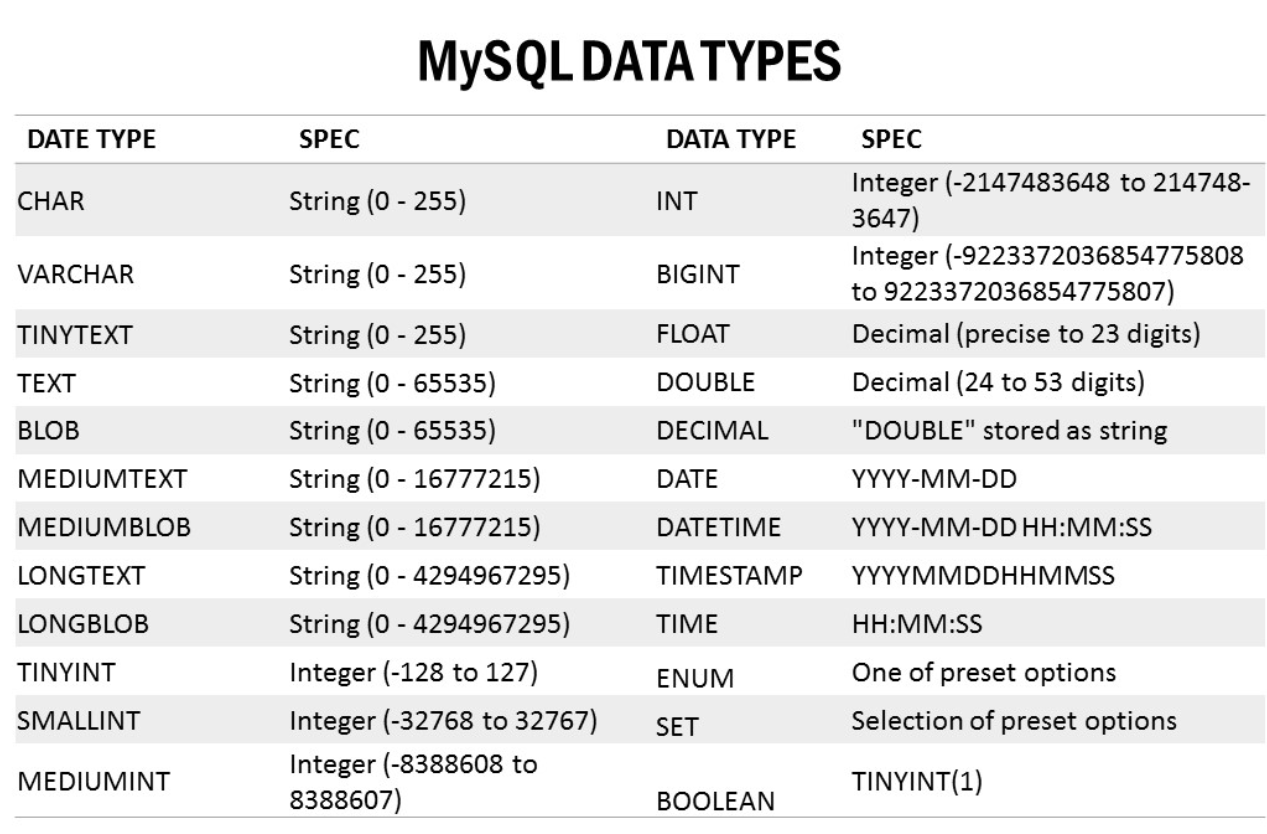MySQL Overview
MySQL is an open-source relational database management system (RDBMS) that is widely used for managing and manipulating structured data.
It is one of the most popular database systems in the world and is known for its speed, reliability, and ease of use.
MySQL is often used in web development and is a core component of the LAMP (Linux, Apache, MySQL, PHP/Perl/Python) and MEAN (MongoDB, Express.js, Angular.js, Node.js) stacks.
Key features and concepts related to MySQL:
-
Relational Database: MySQL is a relational database, which means it organizes data into tables with rows and columns. Each table represents a specific entity, and the relationships between tables are defined through keys.
-
Open Source: MySQL is open-source software, which means it is freely available, and the source code can be modified and redistributed under the terms of the GNU General Public License (GPL).
-
Cross-Platform: MySQL is available for multiple platforms, including Linux, Windows, macOS, and more, making it versatile and accessible on various operating systems.
-
SQL (Structured Query Language): MySQL uses SQL as its query language for defining and manipulating data. SQL is a standardized language for interacting with relational databases, and MySQL follows SQL standards with its own extensions.
-
Data Types: MySQL supports various data types, including integers, floats, strings, dates, and more. You can choose the appropriate data type for each column in your table based on the kind of data it will store.
-
Indexes: Indexes in MySQL help improve the performance of database queries by speeding up data retrieval. You can create indexes on columns to make searching and sorting faster.
-
ACID Properties: MySQL follows the ACID (Atomicity, Consistency, Isolation, Durability) properties, ensuring data integrity and reliability in database transactions.
-
InnoDB Storage Engine: InnoDB is the default storage engine for MySQL, known for its support of transactions, foreign keys, and robust crash recovery mechanisms.
-
MyISAM Storage Engine: While InnoDB is the default, MySQL also supports the MyISAM storage engine, which is suitable for read-heavy workloads and simple use cases. However, it lacks features like transactions and foreign keys.
-
Replication: MySQL supports replication, allowing you to create copies of your database on multiple servers for load balancing, failover, and data redundancy.
-
Partitioning: MySQL offers partitioning options to manage large datasets more efficiently by dividing tables into smaller, more manageable pieces.
-
Security: MySQL provides various security features, including user authentication, access control, and data encryption, to protect your data from unauthorized access.
-
Triggers and Stored Procedures: MySQL allows you to define triggers and stored procedures, which are sets of SQL statements that can be automatically executed in response to specific database events.
-
Community and Enterprise Editions: MySQL is available in both a community edition (free and open-source) and an enterprise edition (with additional features and support) to cater to different user needs.
-
Ecosystem: MySQL has a vast ecosystem of tools, libraries, and connectors, making it easy to integrate with various programming languages and development environments.
-
Graph Database Support: MySQL 8.0 introduced support for storing and querying graph data using the SQL-based Graph Query Language.
-
JSON Support: MySQL has robust support for storing and querying JSON data, making it suitable for applications that work with semi-structured data.
MySQL is widely used in web applications, content management systems, e-commerce platforms, and many other software projects where data storage and retrieval are essential components.
It continues to evolve, with new features and enhancements being added in each new release.
